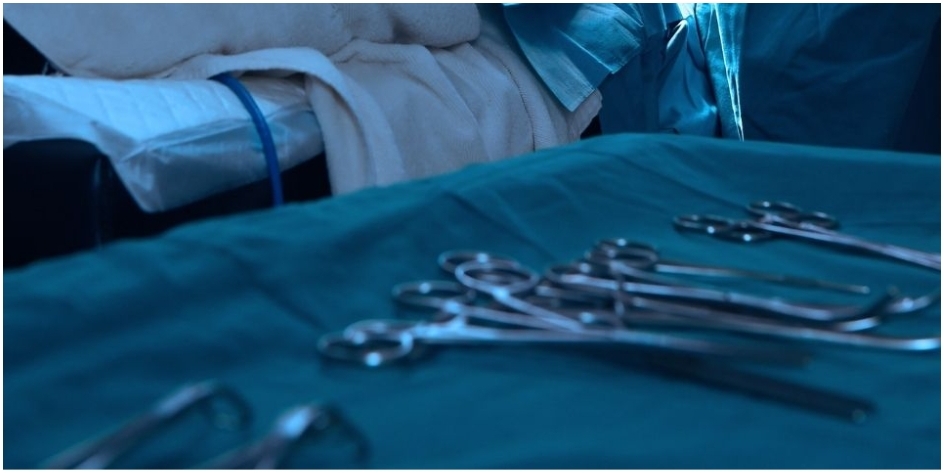Faced with persistent medical issues, notably those affecting colon conditions, one naturally questions if surgery is the best line of action. Knowing when to see a colorectal surgeon will help to bring comfort of mind and clarity. At Pilonidal Expert, we are here to help you negotiate the symptoms suggesting colorectal surgery advice.
What Does a Colorectal Surgeon Do?
These medical professionals treat everything from moderate discomfort to surgically intervened disorders. See a colorectal surgeon for pilonidal cyst therapy or associated disorders if you have recurrent or severe symptoms; this could change your life.

Key Signs You May Need Colorectal Surgery
1. Recurring Discomfort Or Pain
A pilonidal cyst could be the cause of your lower back or near-tailbone ongoing or worsening pain. While many patients respond to non-surgical treatments, swelling or repeated infections may call for surgical intervention. Assessing the matter, a colorectal surgeon pilonidal cyst specialist can suggest the best course of treatment.
2. Regular Diseases
Often indicating that conservative treatments are no longer effective are frequent infections or drainage from a pilonidal cyst. Recurrent infections can cause discomfort, fever, and tiredness that would disrupt your everyday activities. By eliminating the diseased tissue and stopping additional problems, surgery can offer long-term relief.
3. Abscesses Or Unhealed Wounds
Another clue that surgery may be required is an unhealed wound or chronic abscess. These could serve as bacterial breeding sites, therefore raising your risk of problems. Consulting a pilonidal cyst colorectal surgeon guarantees efficient resolution of the underlying problem.
4. Effect On Your Everyday Life
It’s time to discuss surgical possibilities when symptoms interfere with your capacity for job, exercise, or enjoyment of daily activities. Surgery can restore your quality of life and remove the stress resulting from continuous pain or restrictions.
5. Ineffectiveness of Non-Surgery Treatments
Should antibiotics, drainage treatments, or other non-surgical approaches not help your situation, surgery may be the next step. A colorectal surgeon pilonidal cyst near me can review your treatment past and assist you in investigating surgical choices catered to your demands.
What Happens During a Consultation?
A colorectal surgeon will carefully evaluate you throughout your appointment including your medical background and any past treatments. Your condition’s degree may be evaluated with imaging or diagnostic tests. This examination will guide their discussion on whether surgery is required and the kind of operation best fit for your situation.
Common Surgical Procedures for Colorectal Issues
Regarding pilonidal cysts, there are numerous surgical choices available including:
- Incision and Drainage: This is a small operation for pus removal and pain relief incision and drainage.
- Excision Surgery: In cases of recurrent cysts, the surgeon eliminates the cyst to stop recurrence.
- Minimally Invasive Surgery: Advanced minimally invasive surgical techniques including laser surgery or flap closure might provide reduced scars and faster healing.
Every possibility has advantages; a colorectal surgeon will advise the optimal one for your situation.
How to Prepare for Colorectal Surgery?
1. Create Questions: Ask your surgeon about the surgery, recovery, and any issues without delay. Understanding expectations helps reduce anxiety.
2. Follow Pre-Surgery Instructions: Before surgery, your surgeon could counsel dietary changes or medication adjustments. This guarantees a safe and efficient treatment.
3. Plan Recovery Time: Plan time off from work and make sure you have help throughout the first healing phase. Having a care plan helps to ease recuperation.
Keeping educated and ready will help you approach surgery with confidence.
Recovery After Colorectal Surgery
The kind of operation affects the recovery times. Within a few weeks most patients can resume their regular activities, but your surgeon will offer particular instructions to guarantee a seamless recovery. Maintaining the surgical site clean could be part of postoperative treatment.
- Keeping the surgical site clean.
- Avoiding strenuous activities for a few weeks.
- Follow up with your doctor to monitor healing.
Good aftercare reduces the risk of problems and guarantees long-lasting effects of the procedure.
Discover additional information The Connection Between Pilonidal Cysts and Lifestyle Factors
Why Choose Pilonidal Expert?
Pilonidal Expert is aware that the choice to have surgery might be daunting. Experienced colorectal surgeons on our team offer compassionate treatment options and individualized care. Whenever we can, we emphasize minimally invasive approaches to guarantee improved results and a speedier recovery.
Choosing us means you are not just another patient, we are here to help you at every level. Your health, comfort, and long-term relief to our concerns.

When Should I Consult Help?
See a colorectal surgeon to be sure your symptoms call for surgical intervention. Early assessment helps you to avoid issues and enhances your quality of life. Delaying therapy could cause more severe symptoms and prolong the healing process.
Finally
Though it may sound frightening, colorectal surgery is usually the secret to long-lasting comfort and better health. You may take charge of your health and well-being by spotting the symptoms and seeing a reputable surgeon pilonidal cyst expert. We are here to assist you whether your life is disrupted, you have unhealed wounds or frequent infections. See Pilonidal Expert right now to discuss your choices and begin your road toward recovery. Our first concern is your health; we are dedicated to enabling you to live free from pain.
